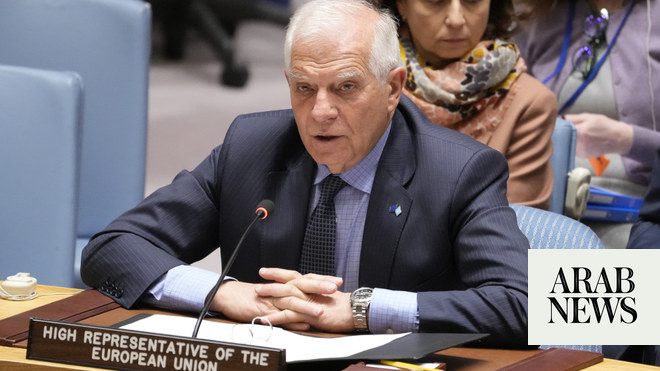
The row between the UK and the EU over checks on sausages and other chilled foods sent from Britain to Northern Ireland has deepened, with the Brexit minister telling Brussels that trade war threats will not wash with voters.
As a major meeting on Wednesday approached, Lord Frost said: “Further threats of legal action and trade retaliation from the EU won’t make life any easier for the shopper in Strabane who can’t buy their favourite product. Nor will it benefit the small business in Ballymena struggling to source produce from their supplier in Birmingham.”
His comments came hours after the former French European affairs minister Nathalie Loiseau, now an MEP, warned that the EU had the power to impose quotas on British exports if it continued to make unilateral decisions on how the Northern Ireland protocol was implemented.
Frost was due to dine with his European Commission counterpart, Maroš Šefčovič, in London on Tuesday night before two key meetings between the UK and the EU about Northern Ireland and other Brexit issues at 8am on Wednesday.
The tenor of Frost’s statement underlines the fading hope for any breakthrough agreement on the checks, which are opposed by unionists and led to violence in Northern Ireland at Easter.
The UK government is reportedly considering unilaterally extending the grace periods under the protocol that give businesses in Northern Ireland time to adapt to new rules – including for the import of chilled meats such as sausages, chicken nuggets and mince from Great Britain.
The grace periods are due to expire at the end of June but, according to the Telegraph, Johnson is contemplating extending them in the face of a lack of progress towards a new agreement on about 30 issues relating to checks on animals, goods and medicines.
“When I meet Maroš Šefčovič later today my message will be clear: time is short and practical solutions are needed now to make the protocol work,” said Frost.
Šefčovič warned on Tuesday that the EU would act “swiftly, firmly and resolutely to ensure that the UK abides by its international law obligations” if the UK decided to delay checks on chilled meats on 30 June.
Loiseau told BBC Radio 4 that if the UK continues to breach the protocol, then tariffs and quotas designed to regulate the import of goods into the EU by upping the price and putting a cap on numbers could be necessary.
“We don’t want to reach that,” she added. “But we are warning – you signed an agreement, you have to implement it, otherwise there are measures we can take that will protect our single market … The international reputation of the UK is at stake.”
George Eustice, the environment secretary, described the threat of an “outright ban” on chicken nuggets and sausages being sent from GB to NI as “bonkers”.
One EU source said Loiseau’s comments regarding the threat of trade quotas being imposed on the EU reflected the fact that the Brexit relationship was now “weaponised”, with a range of remedies and penalties at the EU’s disposal that were not there in January when the withdrawal agreement involving the Northern Ireland protocol and citizens’ rights was signed and ratified by both sides.
“We now have the principle of good faith in a legal agreement and if there are any problems in the trade and cooperation agreement we have legal instruments at our disposal including trade sanctions,” the source said.
Northern Irish businesses are calling on both sides to stop a Brexit “blame game” and deliver urgent solutions to end growing tensions over the checks on food and goods crossing the Irish Sea into the region.
The protocol has been hugely controversial in Northern Ireland, contributing to violence over Easter and fissures in the Democratic Unionist party, which is officially campaigning to have it scrapped.











